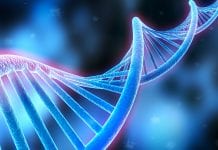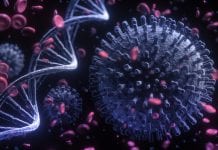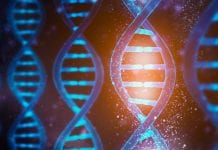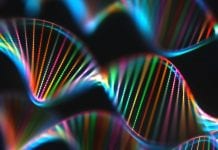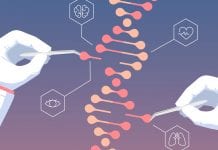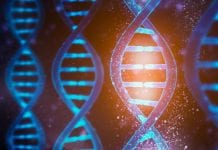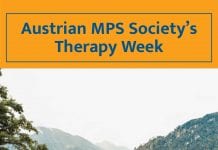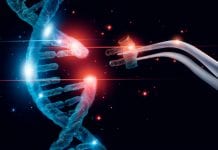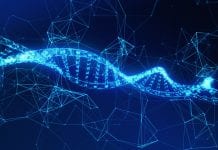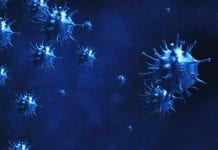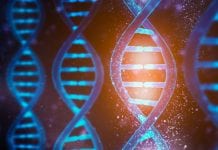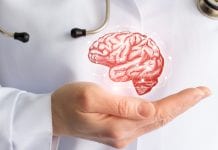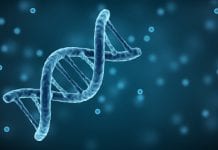Genetics Related News
Genetic link could explain why children develop dyspraxia
Scientists have identified a link between specific genes and developmental coordination disorder (DCD), also known as dyspraxia.
New research, led by Oxford Brookes University, which...
Gene could offer protection from severe COVID-19
A new genetic discovery could explain why certain people do not exhibit symptoms of COVID-19, despite being infected with the virus.
A team of scientific...
IVF clinic group to use AI to non-invasively assess embryos
A group of IVF clinics will be among the first in Europe to use artificial intelligence (AI) to non-invasively assess embryos.
IVF Life Group, a...
Groundbreaking genome study of depression reveals genetic risk factors
Several new gene variants have been identified as increasing the risk factor for depression, in the largest genetic analysis of the condition to date.
The...
New form of muscular dystrophy discovered
Researchers have discovered a new form of muscular dystrophy related to changes in the JAG2 gene.
A new study led by the Department of Clinical...
Novel CRISPR tool allows unprecedented control of epigenetic inheritance
Scientists have developed a novel CRISPR technology tool that allows for superior control of epigenetic inheritance for up to 450 generations, paving the way...
Researchers identify rare genetic syndrome caused by gene mutations
A new study has identified variation in the gene SATB1 which has been shown to cause a rare genetic syndrome.
Advances in DNA sequencing have...
Breakthrough to target care for deadly hypertrophic cardiomyopathy
Researchers have made a groundbreaking discovery of new genetic faults in patients living with the deadly heart condition hypertrophic cardiomyopathy (HCM) which could help...
Austrian MPS Society’s Therapy Week
Mucopolysaccharidosis are a group of rare, inherited, and incurable diseases, and MPS Society Austria aims to help people and families living with these diseases...
Potential new target for treating endometriosis discovered
Researchers have identified a potential target to treat a painful and invasive form of endometriosis.
Endometriosis, particularly the kind associated with the ARID1A mutation, can...
Early access to medicine for hereditary angioedema patients
The UK’s Medicines and Healthcare Products Regulatory Agency (MHRA) has granted a positive scientific opinion to the medicine berotralstat for hereditary angioedema patients through...
Is CRISPR gene therapy for rare Angelman Syndrome on the horizon?
For the first time, scientists have shown how gene editing techniques could be used as therapy for the rare neurodevelopmental disorder – Angelman syndrome.
Babies...
New study links 28 genes to rare developmental disorders
A new study has linked 28 genes to rare developmental disorders and has estimated another 1,000 genes linked to these disorders are yet to...
Scientists link fatal COVID-19 reactions to autoimmunity and faulty genes
Scientists have linked fatal reactions to COVID-19 in young people to rare gene variants and autoimmunity.
New research has shown that 10% of the young...
UK poises to take global lead in genomics with new strategy
A new landmark strategy has been launched that aims to secure the UK as a future global leader in genomics.
The new National Genomic Healthcare...
Understanding rare autoinflammatory conditions during awareness month
September marks World Autoinflammatory Awareness Month – a time for organisations, patients, carers, and families to raise the profile of these rare and complex...
First at-home treatment for spinal muscular atrophy approved by FDA
The first at-home, orally administered treatment for spinal muscular atrophy has been approved by the US Food and Drug Administration (FDA).
The treatment – Evrysdi...
Molecular cause explains a genetic form of microcephaly
Scientists have helped to explain a genetic form of microcephaly by uncovering a molecular cause for the rare disease.
Microcephaly is a condition where babies'...
Genome sequencing: novel genetic cause of rare diseases discovered
A new study has discovered novel genetic causes of rare diseases which researchers believe could lead to the improvement of diagnosis and patient care.
A...
Discover how a microRNA ‘nose cocktail’ could help fight COVID-19
A new report has shown how microRNA that should attack COVID-19 is diminished with chronic conditions and age, and suggests that a ‘nose cocktail’...


